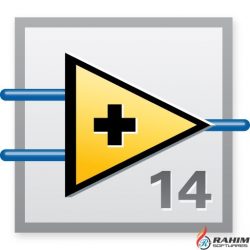

#How to download labview code
Labview61-pro: Contains tools for large LabVIEW application development, such as the LabVIEW Source Code Control toolkit, a VI Documentation tool, a tool for obtaining VI Metrics, and a tool for comparing VI's or hierarchies of VI's (a graphical "differ"). Labview61-help: Contains LabVIEW on-line help files and the HyperHelp viewer licensed from Bristol Technology. Labview61-examples: Contains a variety of example VI's which demonstrate various aspects of programming in G, and the Activity directory for use with the LabVIEW Tutorial. Labview61-desktop: LabVIEW icons and MIME config files for use under the KDE or GNOME desktop environments. Also includes tools for building Code Interface Nodes (CIN's) for calling external code from LabVIEW. Labview61-app: Contains the LabVIEW executable, support files necessary for proper operation, and the standard VI (Virtual Instrument) library, including support for serial, TCP/IP, GPIB, and VISA. The wrapper reorders directory entries from readdir so that LabVIEW doesn't crash (in particular, "." and "." come first). This will turn off an optimization for directories with huge numbers of files, but it shouldn't matter for desktop computers.Īlternatively, for people who can't or don't want to change the file system options, one can compile the spd_readdir.so wrapper from the mailing post of Theodore Ts'o, and start LabVIEW like this: LD_PRELOAD=./spd_readdir.so LD_LIBRARY_PATH=/usr/local/lv61/linux /usr/local/lv61/labview If LabVIEW crashes when it loads, it's most likely this issue: Why Do I Get Segmentation Fault Errors When Installing LabVIEW 7.1 and Earlier on Linux? or LabVIEW 6.1 Running on Linux Kernel 2.6 Hangs at Startup Screenīasically, run this command (replace /dev/hda1 with the disks where you have LabVIEW installed, or that LabVIEW will use): sudo tune2fs -O "^dir_index" /dev/hda1 (or just download this desktop file: Labview6.1.desktop) Icon=/usr/local/lv61/linux/icons/labview.xpm You can also create a desktop file with this contents: Įxec=env LD_LIBRARY_PATH=/usr/local/lv61/linux /usr/local/lv61/labview

Start LabVIEW from the command line with: LD_LIBRARY_PATH=/usr/local/lv61/linux /usr/local/lv61/labview You can extract their contents and if needed do the steps manually like this: rpm -queryformat "%" -qp However these scripts are not "clean" so I can't recommend them. If you add -scripts to the alien commands above, it will translate the post-installation scripts from the. deb files in case you need to reinstall or use them on another Ubuntu/Debian computer. You can now throw away the rpm files or the whole LabVIEW 61Linux directory. deb files by double-clicking on them, or on the command line: sudo dpkg -i labview61-app_6.1-2_b
#How to download labview install
rpm files you would like to install) You can now install the new. deb packages: sudo apt-get install alien fakerootįakeroot alien įakeroot alien
#How to download labview archive
Unzip it with Archive Manager or on the command line: unzip -x labviewlinux.zipĬonvert the included. Readers of the German computer magazine c't can download a free (as in beer, for private usage) version of LabVIEW 6.1 (see ).


 0 kommentar(er)
0 kommentar(er)
